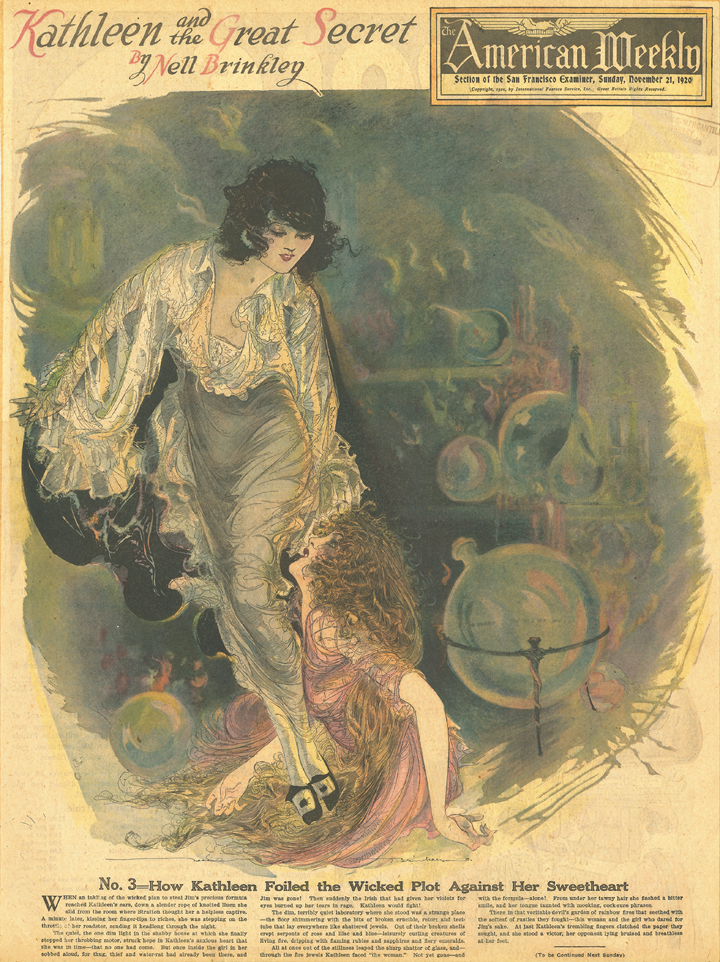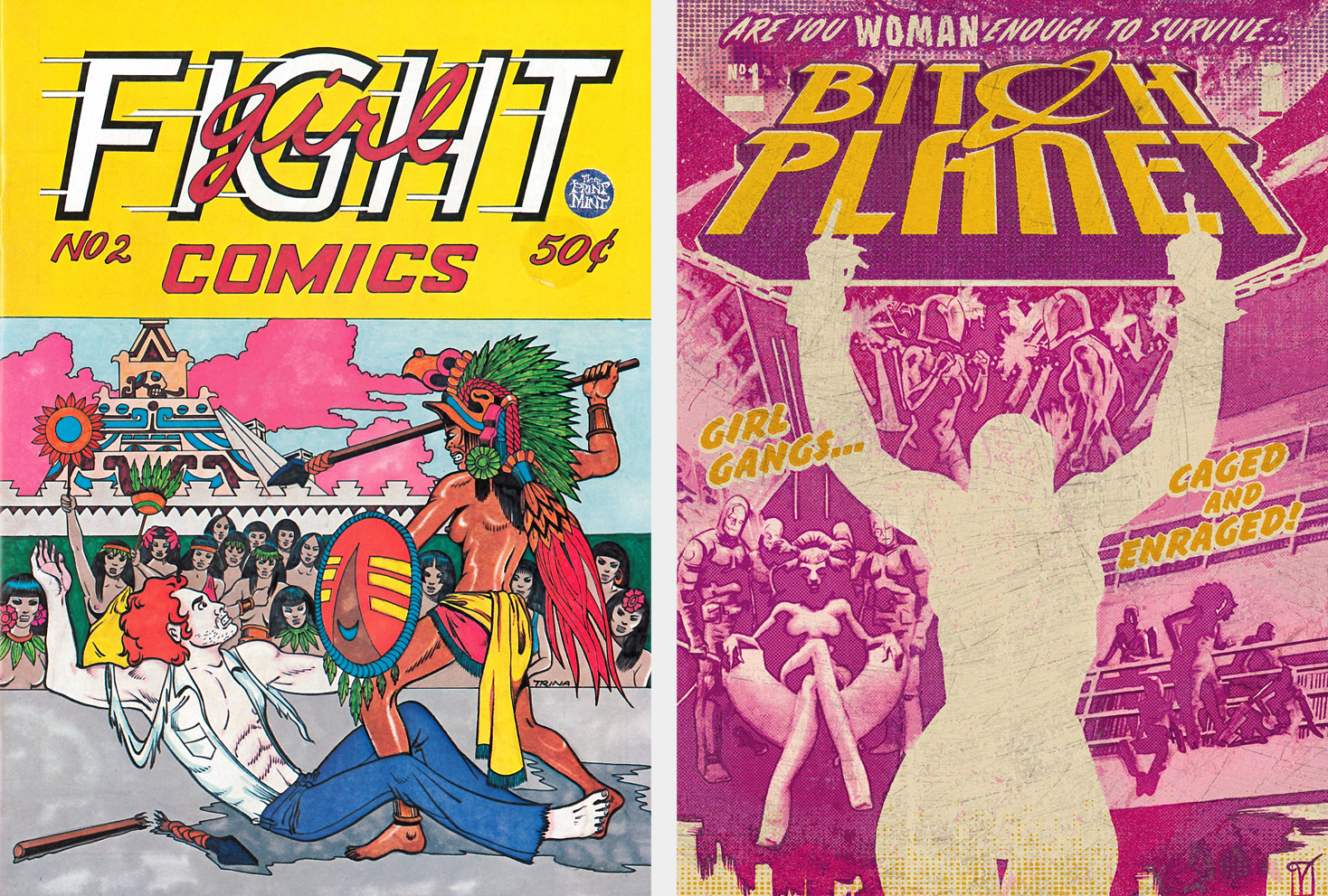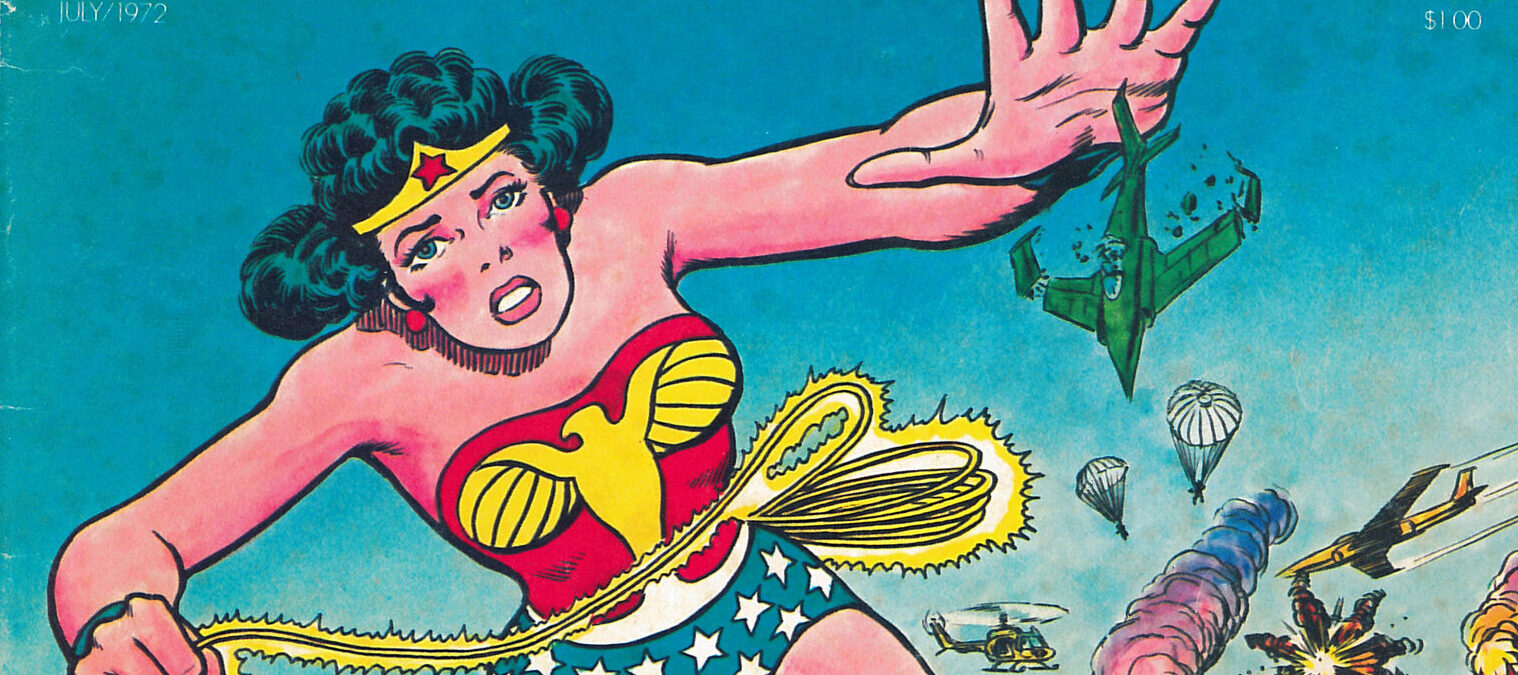NMWA could not host an exhibition called Wonder Women! without featuring several exceptional comics! The first group of objects on view in the Betty Boyd Dettre Library and Research Center (LRC) are an unlikely trio of comics by women, ranging from a 1920s newspaper, to an underground 1970s feminist comic, to a contemporary collection of dystopian comics with a cult following. Each features powerful women and truly represents their respective eras.

Nell Brinkley, writer and artist of the earliest comic on view, brought style, romance, and strong women to the pages of William Randolph Hearst’s newspapers for three decades. Brinkley drew serialized comics in American Sunday magazine, later named American Weekly. “Kathleen and the Great Secret” ran on the cover of American Weekly in 1920 and ’21, featuring a woman who saves her fiancé from villains. Kathleen’s rescue of Jim involved a thrilling journey around the globe. Brinkley’s immense popularity as an illustrator and tastemaker influenced styles of the time. The Ziegfeld Follies featured “Brinkley Girls” dressed in her fashion, and women used hair-curling products named after her.

Fittingly, alongside Brinkley are two comic books by Trina Robbins, who also wrote two books about Brinkley’s place in comics history. While Kathleen has a wispy, Art Nouveau style, Girl Fight is angular and boldly colored. The plotlines are extreme and the dialogue is crude, but it is clear that Robbins was making a point: women in comics books can be powerful and sexual beings, not just minor characters or fantasy superheroes. Robbins also co-founded Wimmen’s Comix, the longest-running all-women comic book, which was published from 1972 until 1992.
The futuristic comic Bitch Planet, by veteran comics author Kelly Sue DeConnick and drawn by Valentine De Landro, like Girl Fight, uses extreme stereotypes to make a point about the kind of stories that have traditionally been told about women in comics and B-movies. On Bitch Planet, women are deemed “non-compliant” and imprisoned for refusing to conform to gender expectations back on Earth. This graphic novel collection of the first issues of Bitch Planet include the backstory of hero Penny Rolle, jailed for “wanton obesity,” who defies the patriarchy that tries to punish her self-acceptance. In an interview with NPR in 2015, DeConnick discussed her awe at the comic’s cult following with some fans posting photos of “NC” (non-compliant) tattoos.
Visit NMWA’s Betty Boyd Dettre Library and Research Center through November 17, 2017 to see Wonder Women!. Located on the museum’s fourth floor, the LRC is open Monday to Friday, 10 a.m. to 12 p.m. and 1 to 5 p.m.
